Find full-text articles from academic and scholarly journals, magazines, newspapers, newsletters, regional publications, pamphlets, conference proceedings, and government, non-governmental (n-g-o) special reports that focus on the impact of gender across a broad spectrum of subject areas.
Find full-text primary source material in American history including several 19th-century newspaper collections with images as well as American county histories and other historical collections.
Black Studies Center is a leading tool that supports research, teaching, and learning in Black Studies and other disciplines that benefit from a more detailed coverage of the black experience such as history, literature, political science, sociology, philosophy, and religion.
Find full-text, indexed and abstracts of scholarly and popular LGBTQ+ publications, plus historically important primary sources, including monographs, magazines and newspapers. It also includes a specialized LGBTQ+ thesaurus containing thousands of terms.
Find doctoral dissertations and master's theses from universities and institutions all around the world.
There are many examples of bibliographies in our collection and available digitally on the Internet. The following list are just a few Internet examples. Please search the new Search Tool or WORLDCAT to find bibliographies by a particular topic. It is best to consider using a broad theme which a specific focus might be found.
Holdings of any type of material held by member libraries of Online Computing Library Center (OCLC) from the 12th century to the present
The Information Literacy Department of the Library provides several detailed instructional guides to assist you in the research process. Use the Information Literacy site index to find a listing of the many resources within this page. PLEASE ASK for help or instructions at the reference desk (442-3553) when searching for information on your topics.
PRIMO is our Library Search Tool (online public access catalog). It is an index/catalog for books, journal titles, indexes, bibliographies and media that the University Library purchases, subscribes to, or leases. To search individual subject specific and general databases, or Search for articles, please click on the Database Finder page or Research by Subject Pages. For those journals that have full-text articles accessible, a direct link or a FIND IT button will appear. FIND IT is an icon that alerts a researcher to the variety of accessible content. If you click on FIND IT, it could take you directly to the source article or to a menu that appears with the options for finding the full-text access or directly to a publisher page. If our library does not have a particular subscription, the Interlibrary Loan options for accessing an article will appear. From there, one can request material.
Characteristics of Scholarly Articles are noted on this guide.
Please use our InterLibrary Loan service if you have determined you cannot access materials from our Libraries.
Finding Books Through our PRIMO Search Tool (ONLINE PUBLIC ACCESS CATALOG)
Resources owned by the University Libraries can be located through the PRIMO Search Tool online catalog by using computer terminals on each floor of the library or through the Internet. Use the Search Tool to locate books by author, title, subject, key word or format. Topics may be searched by using either the Library of Congress Subject Headings (LCSH) or by keyword searching. The Search Tool lists resources that are held by all SUNY Libraries, including books, journal titles, reports, media, and selective Internet resources. To search only UA Libraries, select the advanced search button and select UAlbany Libraries. The notation "DEWEY" indicates materials are in the Dewey Library, records listing "ULIB" in the call number will be found in the University Library, and materials marked "SCIENCE" in the Science Library. On the uptown campus Library of Congress call number ranges from Q through TP are located in the Science Library and may also be found in the Reference stacks of the University Library. All call number ranges are represented in the Dewey Library.
The location of sources should appear next to the call number within the catalog record and also notes whether an item is on order or on loan (and when it is due back). Click directly on the call number on the record to find an item's status. Examples from the Science Library (SCIENCE) and the Dewey Library (DEWEY) are noted with location designations. The Digital Scholarship ), Periodicals (PER), Government Documents (GovDocs), Reference (REF), and Microform (MIC) are all locations within the University Library. "CCBE" indicates items are in the library storage facility and must be requested and picked up at the Science Library, Circulation Desk. Requests for materials in storage may be made through UA Delivery. UA Delivery provides article and book delivery to students, staff, and faculty if resources are owned by any of our three libraries.
If you need a book which is on loan, you may request it be returned for your use through the "recall" process. You can recall a book directly from the record. Select RECALL on the University Libraries homepage to find out more about this or stop by the Circulation desks for assistance.
For citing work in Psychology, consult APA Style - American Psychological Association Publication Manual. This manual is located at the Reference Desks - Ref LB 2369 A62X - However, it is best to begin with Citation Fox for more basic citing of sources for a research or term paper.
HAVE FUN! Don't hesitate to contact us!

